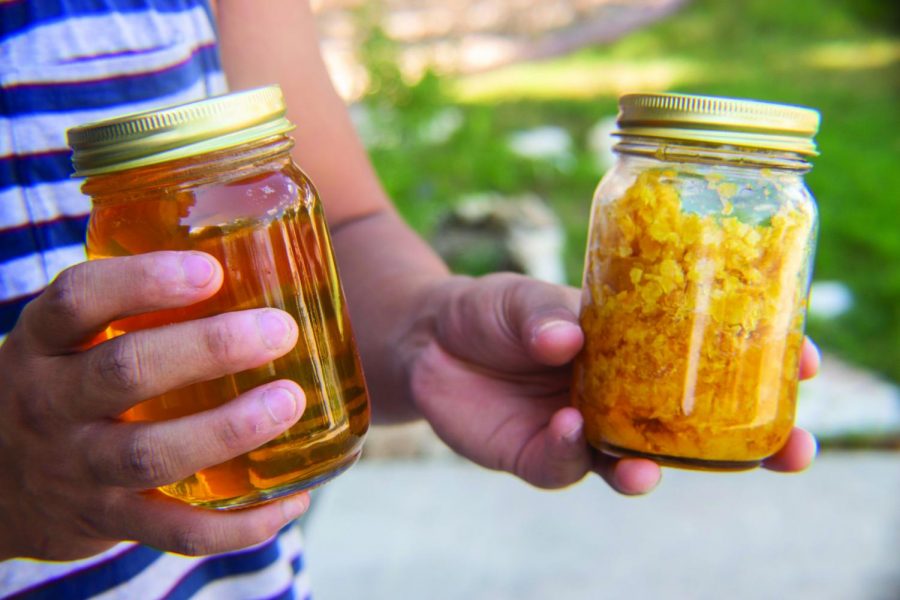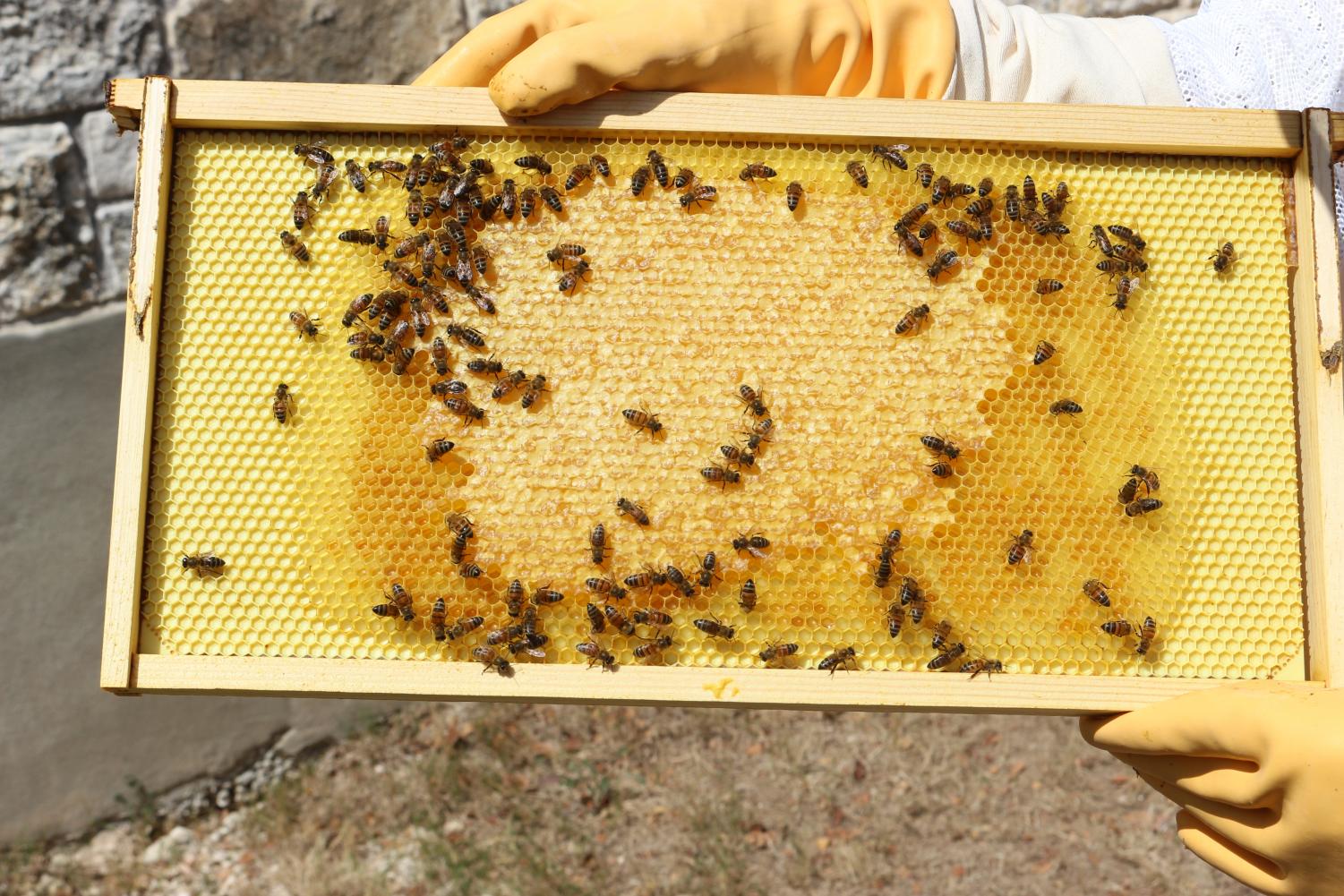Beekeeper keeps community bee-utiful
Jayden Wu works to preserve bees by beekeeping
GETTING STARTED
Over the past six months, junior Jayden Wu has been working to preserve bees in his own home. After hearing that bees are dying, Wu started the process of becoming a beekeeper.
“I decided to get into beekeeping because I heard that bees were at risk of becoming endangered,” Wu said. “I also like honey a lot so it was a win-win situation.”
To start the process of becoming a beekeeper, Wu first had to do his research.
“I watched a lot of YouTube videos on local beekeepers and followed them on Instagram just to see how they did it,” Wu said. “I also took an introductory class on beekeeping with Bee Friendly Austin, they taught me how to take care of hives and everything that I needed to know to get started.”
Wu also had to decide on the type of bees that would be most beneficial for him and the environment around him.
“Most beekeepers work with Italian bees, and that’s the type I have,” Wu said. “Italian bees make the most honey and they’re the most docile and least likely to attack.”
Before Wu could even start this process though, he had to get permission from his parents on whether or not he could have a beehive in his backyard. His father, Jerry Wu had mixed feelings in the beginning but eventually came around.
“I think initially, everyone is naturally apprehensive about beehives near your home much less in your own backyard,” Jerry said. “Austin is a bee-friendly city so as long as the rules were followed and all the things were learned that needed to be learned to maintain them, I was okay with everything.”
CARING FOR THE BEES
Bees are self-sufficient livestock to raise. Once the hive is established they are almost completely independent. That in mind, it is still important to check up on them and maintain their hive.
“In the beginning, I would feed them and check on them, like once a week, to make sure they’re doing all right, and not having problems and that they’re growing,” Jayden said. “Now that they are established I only to check on them once every three to four weeks.”
Beekeepers have an important role in maintaining the health and stability of their hive, they have to make sure that their bees are developing properly.
“When I go in and check on my bees, I make sure that they are not swarming or making another hive,” Jayden said. “I also make sure that they are laying eggs and producing enough honey for them to survive.”
Jayden is pretty independent in raising his bees, but that doesn’t mean that he doesn’t have the support of his family.
“It’s kind of like your kid wanting a dog of their own but then the dog becomes part of the entire family so eventually, everyone has a hand in feeding, walking, scooping, etc,” Jerry said.
THE IMPORTANCE OF BEEKEEPING
Beekeeping possesses many benefits for both the beekeeper and the bees involved. It is an important part of the preservation of bees and provides shelter and a safe place for bees to grow.
“So bees, naturally they would be able to survive on their own in the wild,” Jayden said. “But there’s now parasites and diseases that have been introduced from different parts of the world. The biggest problem right now is the varroa mite, which is originally from Asia, but it’s now spread all over the world, except Australia. So without human intervention, the mites would just completely destroy all the bees. So for them to survive, they need humans to get rid of those mites. Beekeeping helps with that.”
Beekeeping is important for the environment as well. Bees are a vital pollinator and part of the ecosystem that everything depends on. AP Environmental science teacher, Ashley Spiro strongly believes in bee preservation.
“Bees are pollinators. Pollinators are responsible for fertilizing the vast majority of flowering plants on earth,” Spiro said. “Nearly all fruit and vegetable crops rely on pollination to grow.”
HOW PEOPLE CAN HELP THE BEES
Besides beekeeping, there are other ways that people can help in protecting the bee population. To support the growth of bees people can also look into what they grow in their backyard, and what they put into their soil.
“To help bees people can ban pesticides, such as neonicotinoids, that are shown to decimate bee population,” Spiro said. “People can also plant wildflower gardens and other native flowering plants to help provide plentiful resources for all of Austin’s local pollinators. Everyone can make an effort to slow the speed at which the earth’s climate is changing. This can be done by people making an effort to reduce fossil fuel consumption.”
Your donation will support the student journalists of James Bowie High School. Your contribution will help cover our annual website hosting costs. Any contributions made through this service are NOT tax deductible. If you would like to make a tax deductible donation OR to subscribe to our print edition, please contact us at [email protected].







